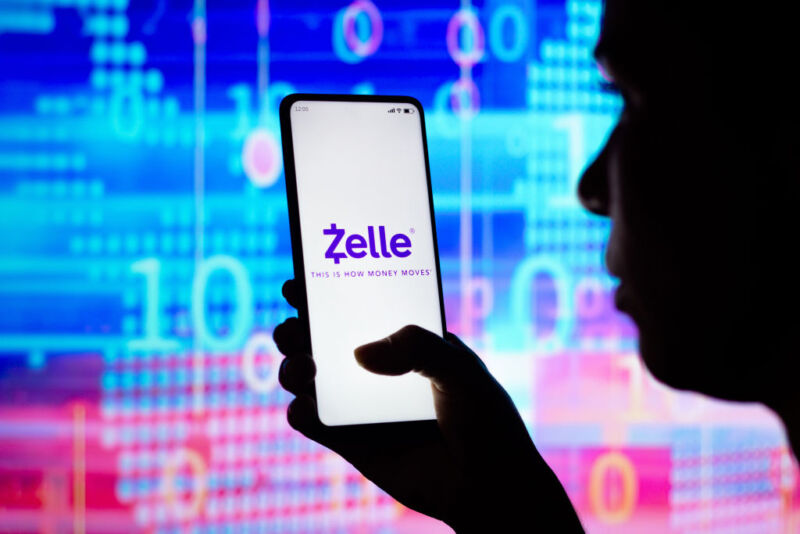Zelle fraud is on the rise—and many victims are denied refunds

Enlarge (credit: SOPA Images / Contributor | LightRocket)
When seven of the biggest banks in America saw that their customers liked using apps to send instant peer-to-peer payments, they rolled out Zelle through a jointly owned company called Early Warning Services in 2017 and quickly began processing billions in payments annually. By 2021, Zelle was processing nearly twice the number of payments as Venmo, but as the volume of Zelle payments increased, so did rumors about increased fraud. Scammed Zelle users complained to the New York Times that Zelle did not always reimburse customers who reported stolen money.
Suspicious after mounting anecdotal reports, one of the toughest policymakers on banks, Senator Elizabeth Warren (D-MA), launched an investigation. She demanded data from all seven of the big banks: JPMorgan Chase, Wells Fargo, US Bank, PNC, Capital One, Bank of America, and Truist. Only four banks complied. However, Warren's report released this week shows that even half the data she sought was enough to show that fraud is growing" on Zelle and that the banks are not refunding the vast majority of defrauded consumers, breaking their promises to their customers and potentially violating federal law."
According to Warren's analysis of data shared by US Bank, PNC, Bank of America, and Truist, these four banks alone are on pace to receive scam and fraud claims in excess of $255 million in 2022," a dramatic spike compared to $90 million in 2020.